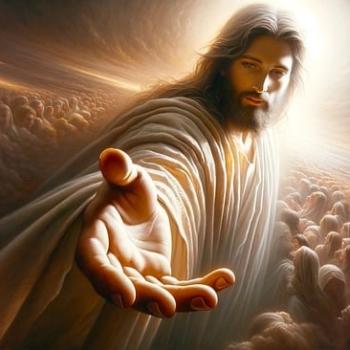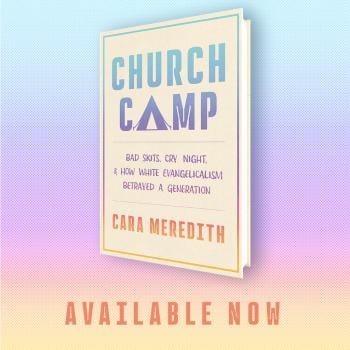By Peter Konz

In the Gospels, Jesus preaches the Kingdom of God to all, and particularly to the poor and the oppressed. He speaks of freedom for those who are held captive and in need of liberation. Jesus knew well how the poor lived in first century Palestine. There was a great disparity between those who were wealthy and those who were not. The wealthy were made up of some of the High Priestly families, landowners, merchants, tax collectors, and the Romans. They were but a small segment of the society and everyone else was poor. Jesus himself, as a son of a carpenter, was in one of the lowest and poorest classes. Oftentimes the poor suffered at the hands of the wealthy. Some of those who had wealth carried it to the extremes of greed and abuse of power, always in search of more.
Poverty is yet with us today. In many ways the disparity between those who have and those who don't remains the same. Jesus told us that "the poor we would have always" and things haven't changed. So how do we as a church navigate the different circumstances that the poor and the oppressed of the earth suffer? With our current world economic situation, poverty is on the rise, people are being taken advantage of and exploited by others and their greed.
Poverty and oppression has many faces and facets. It is not merely a physical issue because people are more than physical beings. Jurgen Moltmann writes on the expression of the poor in the gospels. He states, "The poverty mean extends from economic, social, and physical poverty to psychological, moral, and religious poverty. The poor are all those who have to endure acts of violence and injustice without being able to defend themselves. The poor are all who have to exist physically and spiritually on the fringe of death, who have nothing to live for and to whom life has nothing to offer. The poor are all who are at the mercy of others, and who live with empty open hands. Poverty therefore means both dependency and openness. We ought not to confine poverty in religious terms to general dependence of men on God. But it cannot be interpreted in a merely economic or physical sense either. It is an expression which describes the enslavement and dehumanization of man in more than one dimension."
According to Moltmann, the expression "the Poor" is far more extensive than the physical needs. We as Christians can minister in a variety of ways based upon how the Spirit may be calling us. But if we are to follow Christ, our involvement with his mission is not an option, it is a privilege. We as believers are commanded, encouraged, and filled with the Holy Spirit to do these good works.
Poverty presents a great need, but is it all bad? In one of his greatest preaching moments, the Sermon on the Mount, Jesus includes "blessed are the poor in spirit" in his list of beatitudes. In the Old Testament the wealthy were encouraged to give alms to the poor as both a way of helping the poor and of doing good works. In the New Testament we see Jesus encouraging the wealthy to sell all their possessions, to give what they had away to the poor and to follow him (Lk. 18:18-23). Does this mean that we are called into poverty ourselves, and into solidarity with the poor? In the book of Acts, we see that the early church both sold and shared possessions, that they were encouraged to keep all things in common. This would mean that the wealthier among them, in effect, would be made poor (Acts 4:32).
When we consider all that Jesus taught in word and in deed, we see that the way of the Kingdom involves a downward trajectory. Everything is the opposite from how we as people usually chase after things. The "least will be the greatest," and the "last shall be first."
From the early church until the present there have been those who have taken the vow of poverty. This has been a discipline that is maintained for the good of all. This continues the idea of "keeping all things in common." It takes away division and strife; it negates greed. It is a way of obedience that allows them the freedom to pursue God and God's desires versus their own. It is all about this development of personal freedom, through obedience and the preservation of human community. Obviously, not all of us are called into the monastic life, but we too need to consider obedience and the preservation of all of humanity.
Peter Konz lives in the San Francisco Bay Area, where, among other things, he practices the art of Spiritual Direction. He has completed work at Fuller Theological Seminary in Biblical Studies and is currently working toward a Doctor of Ministry in Christian Spirituality at San Francisco Theological Seminary. Peter is happily married to his wife, Donna, and has two children, Natalie and Jordan, and two grandchildren, Isaiah and Trinity. Peter blogs at his website www.towardgod.com.
11/30/2009 5:00:00 AM




